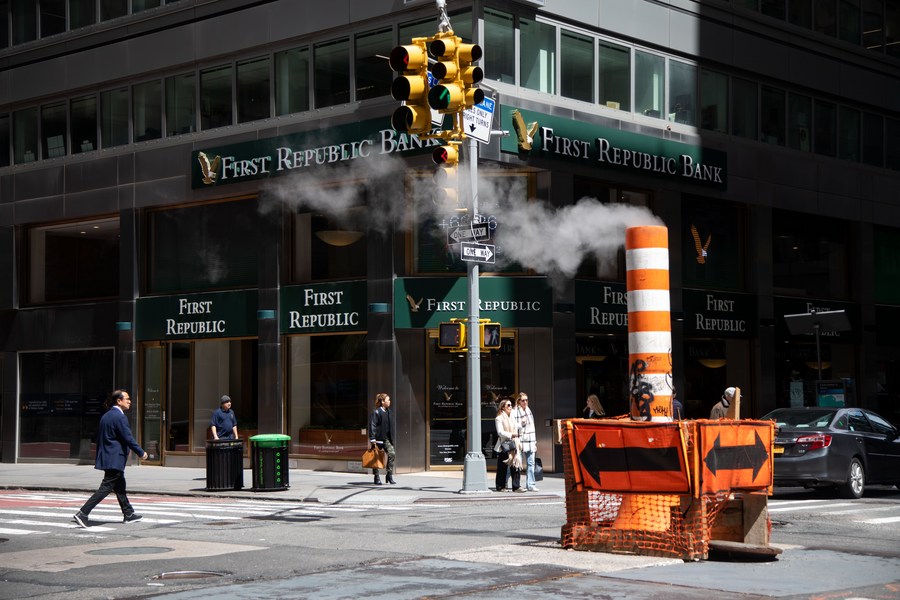
Photo taken on May 1, 2023 shows a branch of First Republic Bank in New York, the United States. (Photo: Xinhua)
The United States Department of Financial Protection and Innovation announced on May 1 the shutdown of First Republic Bank and appointed the Federal Deposit Insurance Corporation to take over the bank following the drastic decline in its stock prices.
The same day, FDIC signed a deal with JP Morgan Chase under which the latter would buy all of the bank's deposits and most of its assets. Fed Chairman Jerome Powell announced at a news conference that US banks are healthy and resilient, while JP Morgan Chase CEO Jamie Dimon said the banking system was "very, very sound".
However, banking stock prices continued to fall. After the Fed announced a 25 basis point interest rate hike on May 3, the prices of US bank stocks fell sharply, with the index of large as well as regional American banks hitting a two-and-a-half year low. As bank stocks continue to tumble, the US federal and state governments are reportedly reviewing whether the turmoil was a result of "market manipulation". There have been growing calls for the US Securities and Exchange Commission to tighten market regulation.
Short selling might be responsible for the tumbling of US bank stock prices, but the continuous interest rate hikes, the gloomy outlook for the US economy, and misappropriate moves in taking over First Republic Bank have provided a "hotbed" for the short selling of the bank stocks.
The Fed's 500 basis points of interest rate hikes have been jarring for US banks, making many banks face increasingly serious problems of high financing costs and low profitability. Continued interest rate hikes have also made it expensive for banks to hold deposits. The US' economic growth slowed more than expected in the first quarter, reinforcing the perception that the US economy is in a recession.
The ongoing debt ceiling crisis in the US is another factor affecting market stability. The Democrats and Republicans are still wrangling over the limits of the debt ceiling.
But even if the US settles its debt ceiling dispute this time, it is likely that the issue of how to pay interest on the high debt will soon be put on the table.


